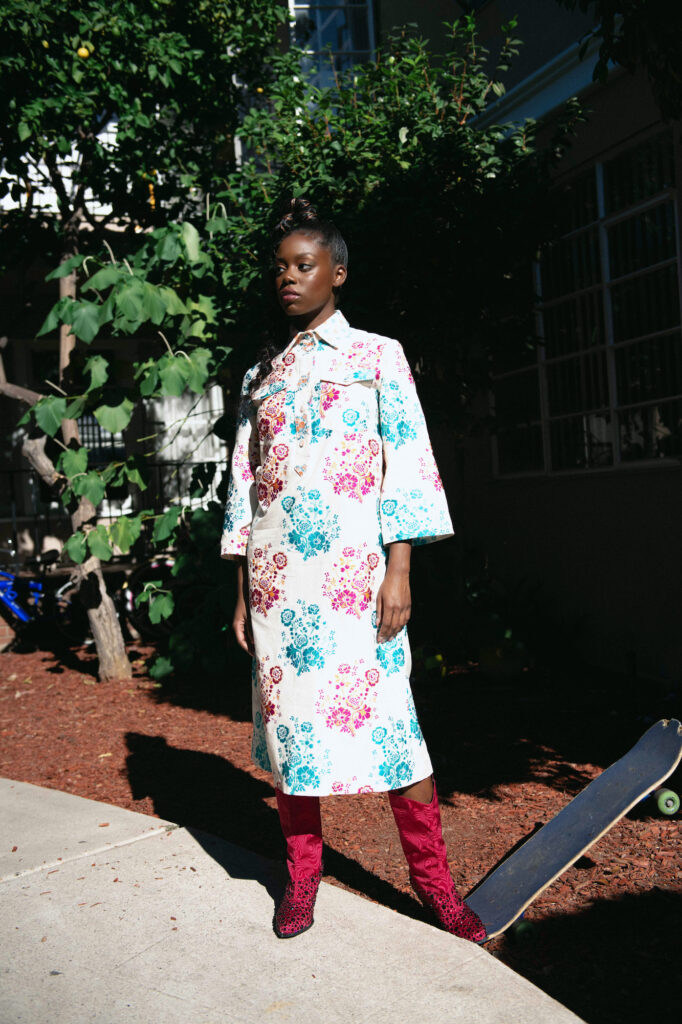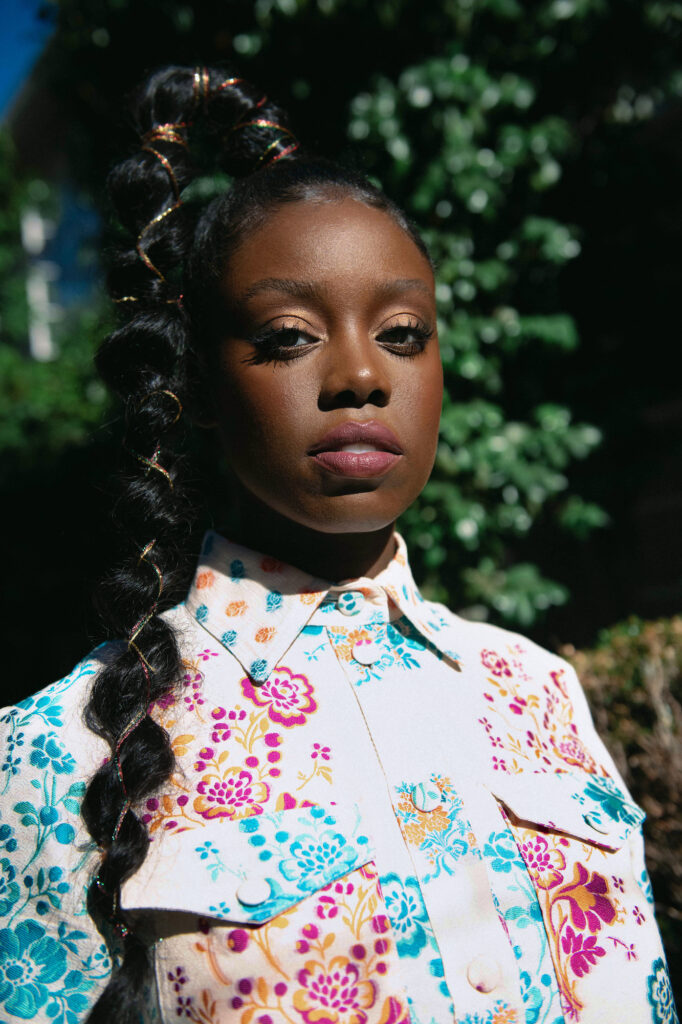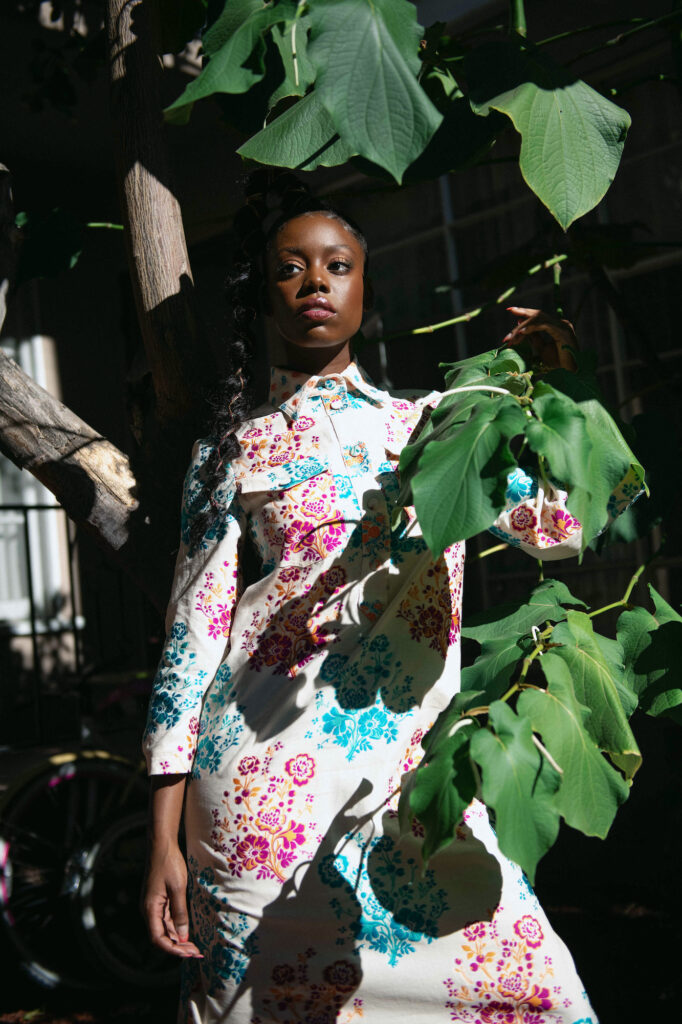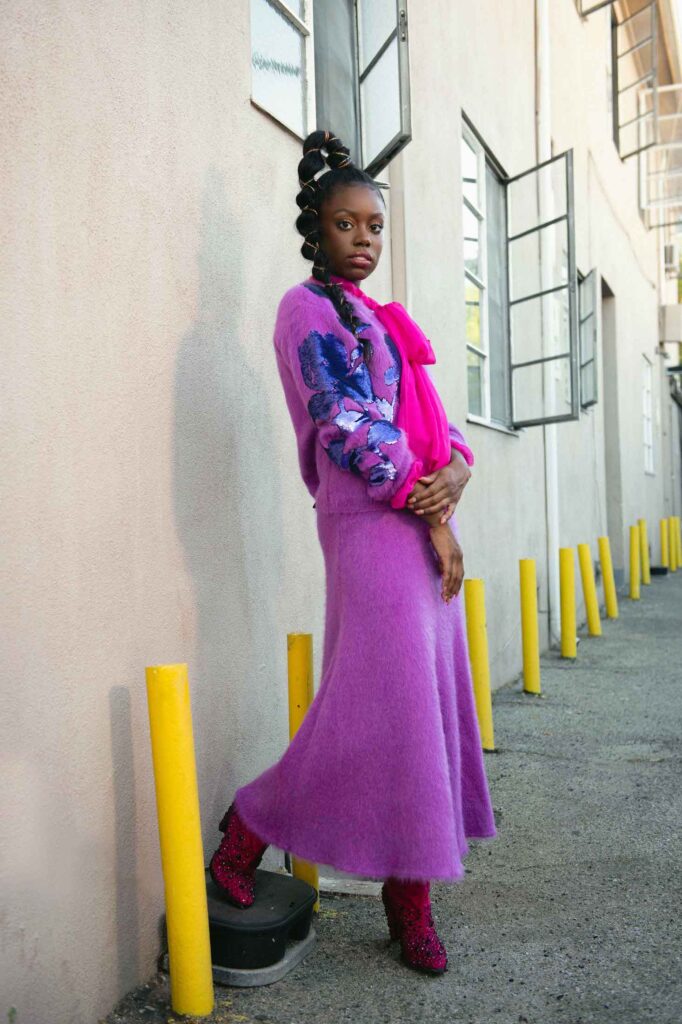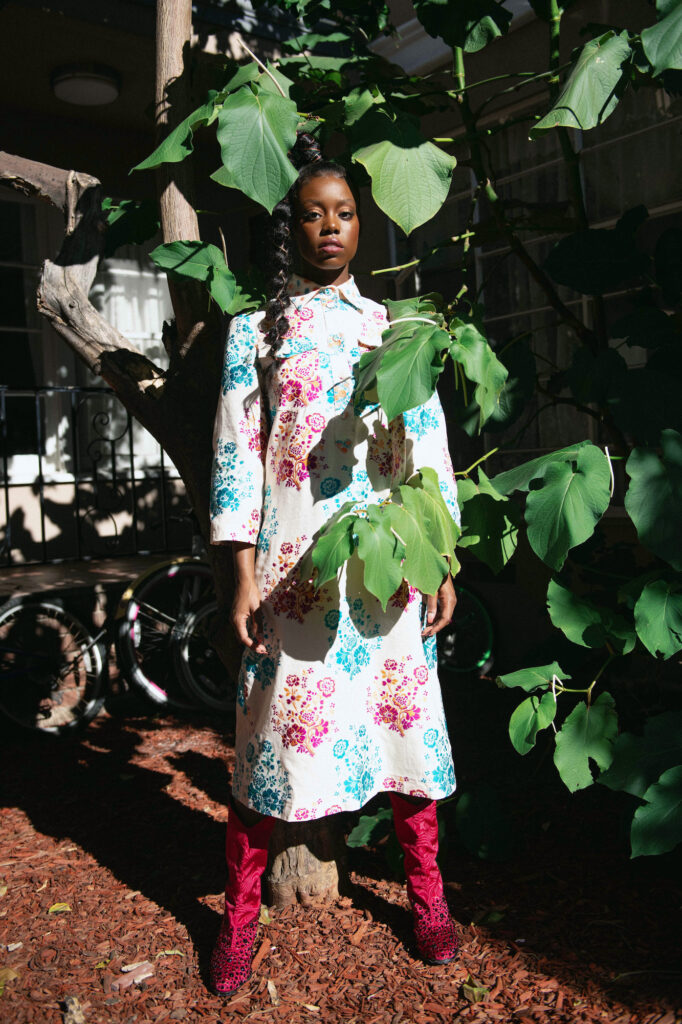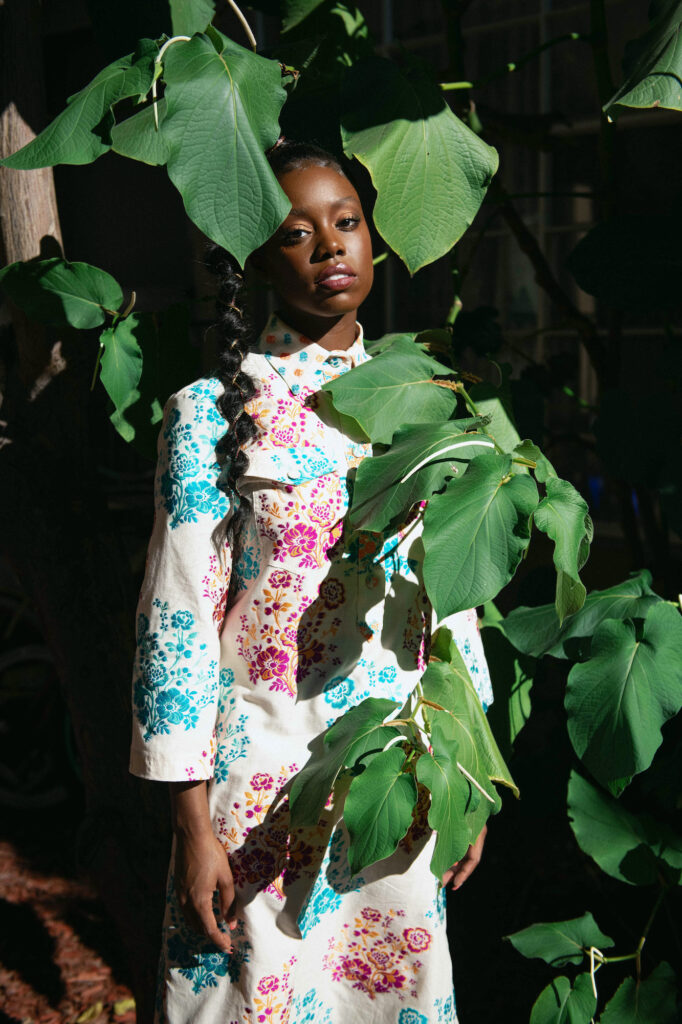

STARS IN SHOWTIME SERIES “THE CHI”
Photography | ALLEGRA MESSINA
Creative Director | DEBORAH FERGUSON
Birgundi Baker is an actor, singer, and dancer, who has starred on hit shows like Fox’s Empire, The CW’s Black Lightning, and now returning for season three of Showtime’s The Chi. In her role as Kiesha Williams, Baker reorients The Chi’s narrative to examine the ways in which her disappearance impacts the rest of the show’s interconnected characters. I asked her about her role on The Chi, the importance of telling the stories of missing women, and where she hopes to be in the future.
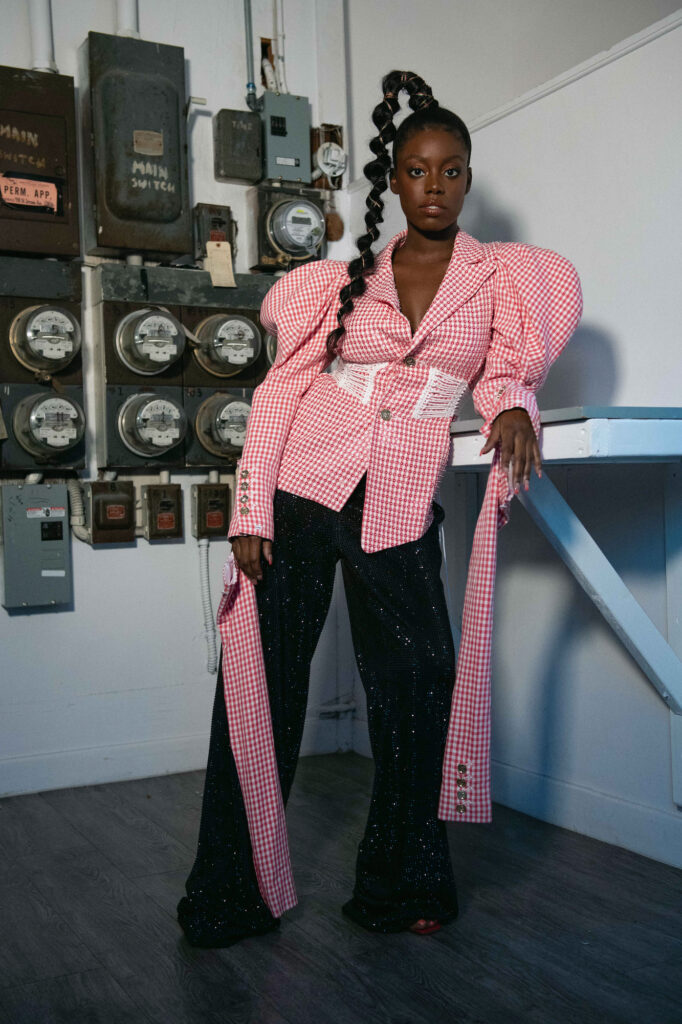
Interview by Colter Ruland
Q: There is so much happening in the world right now. How are you holding up?
A: I’m doing well. I have spent most of this time with family. I have tried to use this time to the best of my ability. I participated in my first protest in Los Angeles and finished my short film script Grace during this time!
Q: What’s it been like to see the third season of The Chi air in the midst of a pandemic and protests for racial justice?
A: Unfortunately, there is so much going on in the world, but I believe art is supposed to reflect real life. In that case, The Chi aired at the perfect time. We are in a time where black voices are speaking out. The show follows that. As we watch the Black Lives Matter movement, I think it’s important that we see a show like The Chi, where young black girls are given a voice, and the diversity and dynamics of black families are shown.
Q: You play the role of Kiesha. What initially drew you to her and has she taught you anything about yourself offscreen?
A: When I read the character breakdown for Kiesha, I immediately knew who she was. We have so much in common. We both come from black neighborhoods where everyone knows each other. We were both raised in households with a woman as the head of the house. We both lived in communities that pushed us to grow up fast. We both have younger brothers. Kiesha and I both speak our minds and have strong backbones. What drew me to her was her vibrant, fearful personality. The scene where she makes sure her brother’s shoes are clean and lets him use her phone to text a girl showed me how sweet and cool she is.
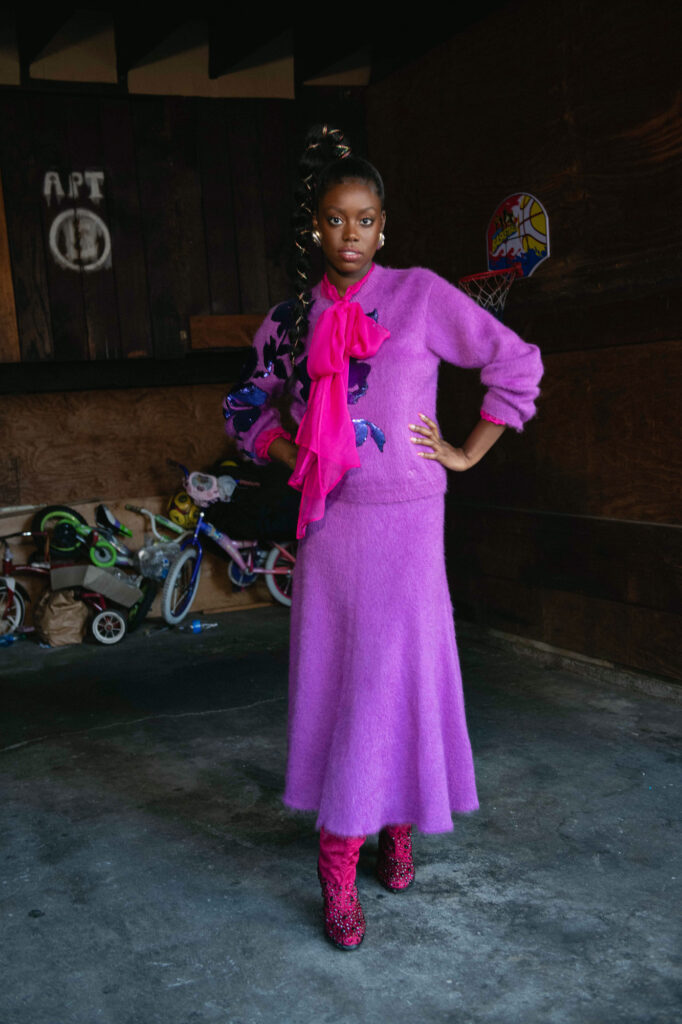
Blouse, Sweater, Skirt : Maison Valentino, Boots: Gucci, Earrings: Vintage
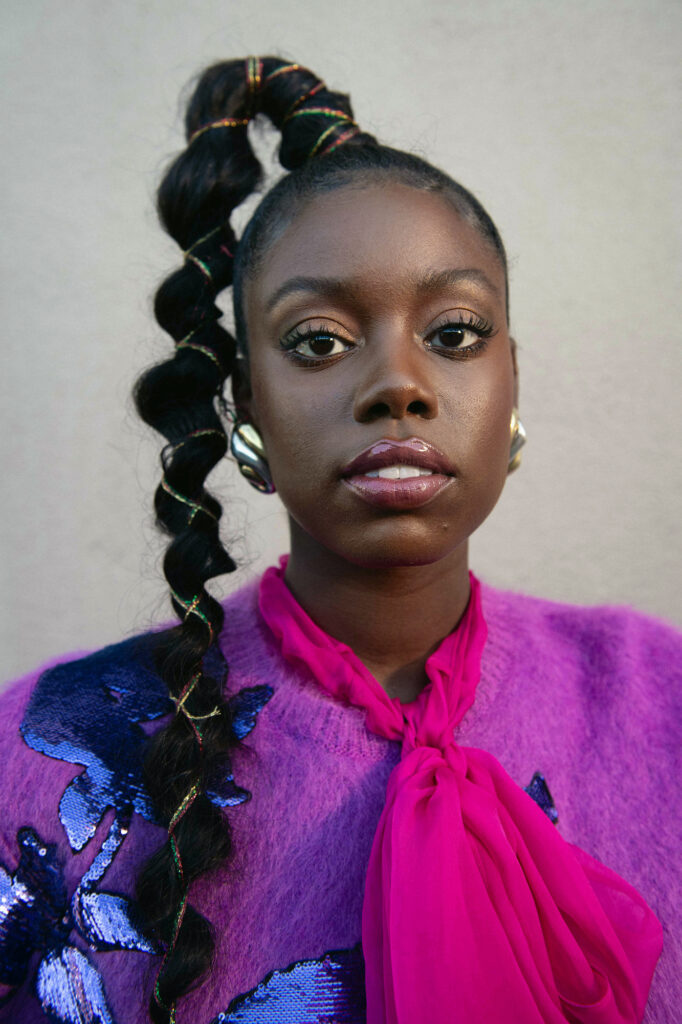
Q: In this third season, Kiesha refocuses the show in a major way. She’s on the cusp of moving out and attending college in California, then she abruptly disappears. What was it like preparing for this change?
A: Research was key for me. I didn’t know how many girls were being kidnapped and how often it happens in our neighborhoods by people in our community. I would listen to interviews and read stories from rape and abuse victims. There was definitely enough information there for me to feel for Kiesha.
Q: Kiesha’s disappearance of course speaks to the horrifying disappearances of black women, but unlike those experiences, we actually witness what is happening to her. How important is it to see Kiesha’s perspective while her community grapples with her absence?
A: I am so glad they showed Kiesha’s circumstances. A lot of people are visual. Seeing what happens to Kiesha makes it real for people. If you can witness her pain, you can further imagine what these girls go through. If we see her fight, we can inspire girls to keep up the fight. I think it’s also very important that the audience see the disconnect between the community and the girls within that community. She was in the neighborhood during the entire abduction and the community failed to find her.
Q: What is so haunting about Kiesha’s disappearance is that everyone is impacted in some way, even as daily life moves forward for all these characters. Do you think that’s the paradox of a tragedy like this, that it can both impact our lives and go ignored by the world at-large?
A: Absolutely! Again, this is how the show reflects real life. Family members of victims still have to live. The family still has to go to school and work in the midst of all this. Families have to stay sane. That is why it is so important for families of victims to have the support of the community and the world.
Q: In a recent roundtable with your fellow cast members, you said, “We forget as artists that it’s our job to shed light on what’s really going on in the world.” How do you think art can shed a light in ways that other modes cannot?
A: I think art sheds a light unlike any other mode because art is so entertaining. Oftentimes it is the entertaining aspect that draws people into a show. For a second you may forget you are being informed on a topic because you are being entertained. It’s not always easy to take in information, but when it comes to watching TV you see elements of everything: costumes, music, visuals, conversation. That can be very cathartic. Something is bound to capture your attention. Everyone can relate to art.
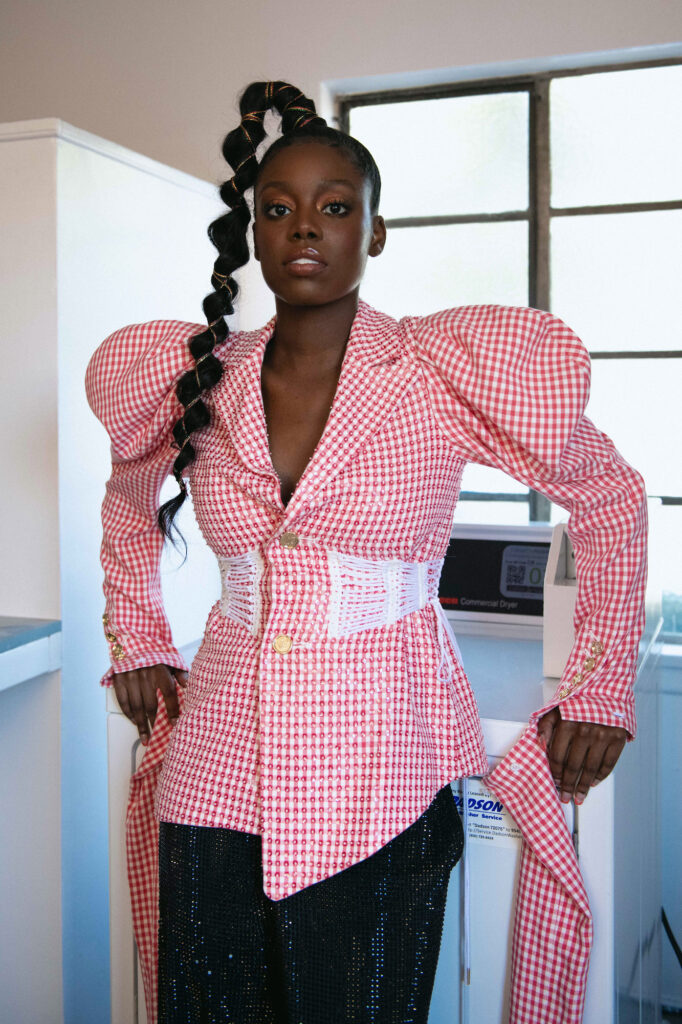
Q: Do you think there’s a difference between spreading empathy and spreading awareness?
A: Yes. As I work with the Black and Missing Foundation, I see the different ways they reach out to the world. I think hearing from family members of the abducted creates empathy. It touches you when you see the heartache these families go through. On another note, having leaders share the numbers and statistics of missing girls spreads awareness. This makes people more educated on the topic. I think empathy captures the heart and awareness captures the mind.
Q: How do you think you’ve grown as an actor from your work on Empire to now on The Chi?
A: This season on The Chi gave me so much responsibility. I had to figure out how to get to a very emotional place every day, and I had to do it quickly. It became a personal process for me. I figured out how to get in touch with my character through prayer and meditation. This is a process I am sure I will carry with me to other projects.
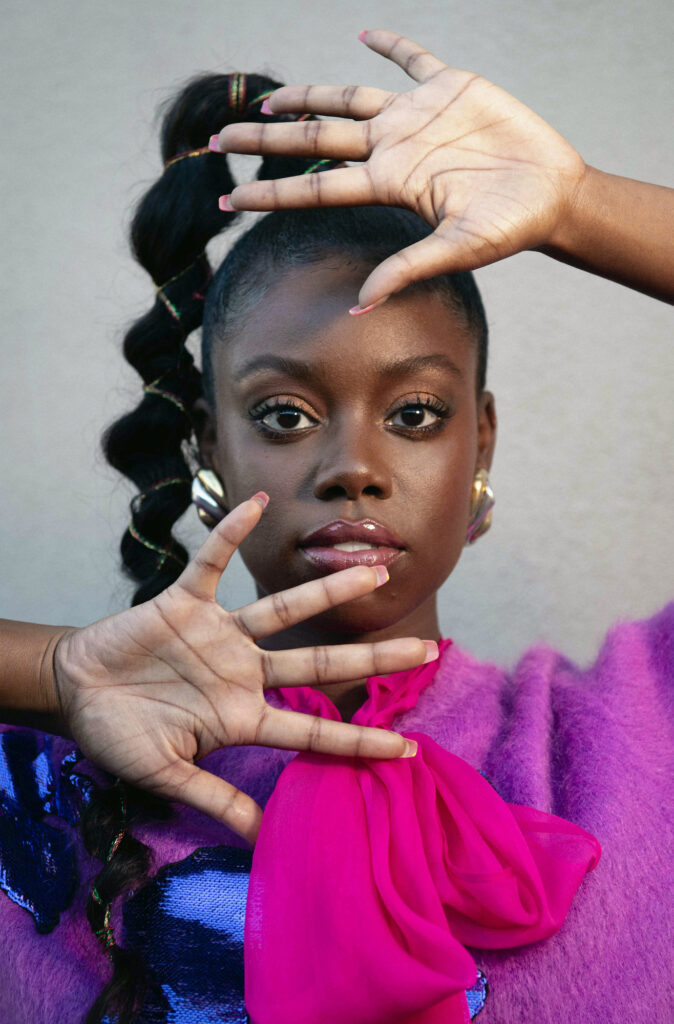
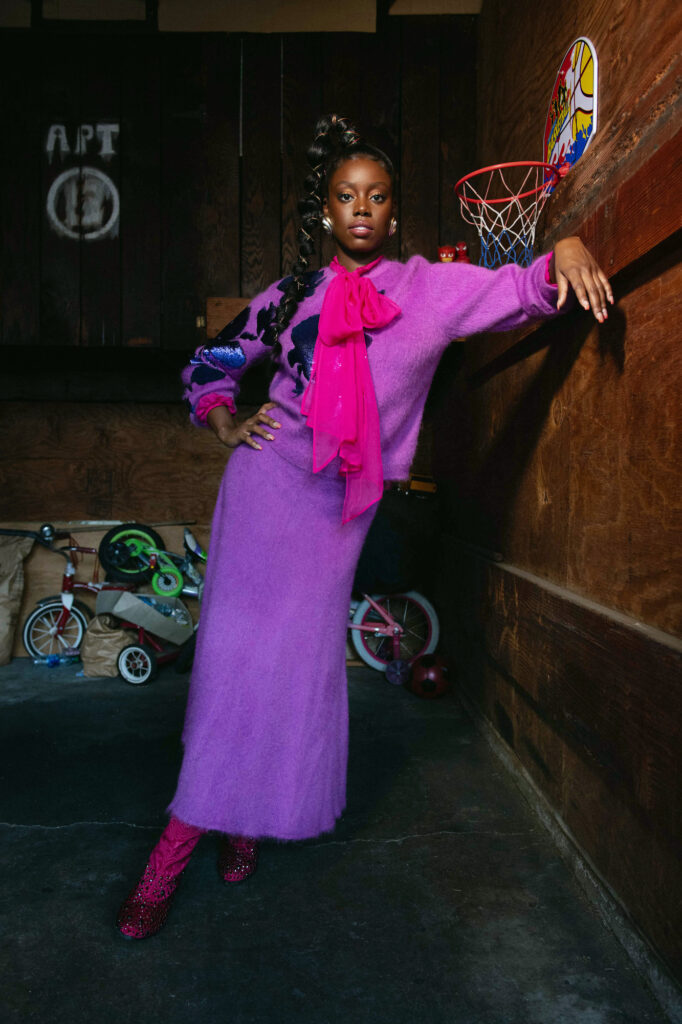
Blouse , Sweater, Skirt : Maison Valentino, Boots: Gucci, Earrings: Vintage
Q: Is there any particular dream role you envision for yourself?
A: I would love to play the lead in an action movie. I’ve played sports and taken dance lessons all my life, and it would be nice to put my physical abilities to use. It would be an honor to play anything that represents an important time in African American history: a black queen, a character in slavery, or even a character dealing with the present issues of racial injustice.
Also, because I was a musical theatre major at Howard University, a musical biopic would be a dream!
A: What can we expect next from you?
A: My next goal is to do a feature film. I’m hoping this season of The Chi will lead to the opportunity. Until then I am working hard to get my short film off the page and on to screen. I will be in Tuscaloosa, a film playing at the Cannes Film Festival, 2021, and Circuit, a short film playing at this year’s Urban Film Festival.
